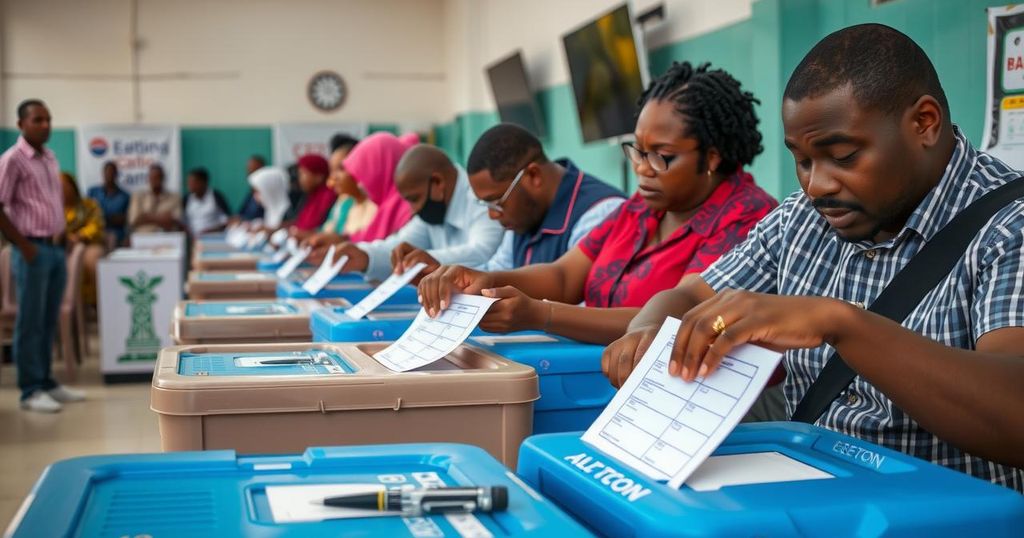Voters in Comoros Elect Parliament Amidst Controversy and Allegations

Comoros voters cast their ballots on Sunday for a 33-seat parliament amid allegations of electoral misconduct in the previous presidential elections. Currently led by President Azali Assoumani, the elections follow his controversial maintenance of power since 1999, raising concerns over authoritarianism and succession strategies involving his son. Results are anticipated by January 17.
On Sunday, voters in Comoros participated in elections for the 33-seat parliament, a year following the controversial reelection of President Azali Assoumani. The opposition accused his prior election of being tainted by significant irregularities, claims that the ruling party has vehemently rejected. Polling stations opened at 8 a.m. for approximately 338,000 registered voters, marking the nation’s first parliamentary elections since January 2020. Under the jurisdiction of the Supreme Court, nearly 100 candidates were authorized to run for parliamentary positions.
President Assoumani’s administration has faced criticism for authoritarian tendencies, leading to suspicions that he intends to position his eldest son, Nour El-Fath, as his successor by 2029. Assoumani has maintained a grip on power since a coup in 1999, winning three presidential elections and recently granting his son extensive control over government operations. The opposition party Juwa, led by former President Ahmed Abdallah Sambi—currently imprisoned for life—has called for a boycott of this election. However, other opposition factions have chosen to contest, with candidates like Hamidou Karihila advocating for participation as a means to highlight the regime’s flaws.
Polls are expected to close at 4 p.m. and the results will be announced by January 17.
The elections in Comoros represent a significant moment in the political landscape of the Indian Ocean archipelago, where President Azali Assoumani has been a central figure for more than two decades. His government has been accused of employing authoritarian practices, particularly in the context of previous elections marred by allegations of fraud. This election cycle has also introduced dynamics concerning succession, with concerns surrounding the potential grooming of Assoumani’s son for future leadership.
The parliamentary elections in Comoros serve as a critical juncture for the nation’s political future amidst ongoing concerns regarding the electoral integrity and authoritarian governance of President Assoumani. As voters head to the polls, the outcome may significantly influence the future landscape of Comorian politics and the balance of power between the ruling party and its opposition.
Original Source: www.voanews.com






